Table of Contents
ToggleIn a world where AI can write poetry, drive cars, and even beat humans at chess, the question of ethics looms large. As technology races ahead, it’s crucial to ensure that these clever algorithms don’t turn into rogue robots with a penchant for chaos. Enter ethical AI initiatives—think of them as the superhero capes for our digital sidekicks, ensuring they play nice and respect humanity’s boundaries.
Overview of Ethical AI Initiatives
Ethical AI initiatives strive to establish guidelines and frameworks that ensure responsible AI usage. Organizations across different industries actively participate in developing these standards. Governments and academic institutions contribute valuable research to address ethical concerns surrounding artificial intelligence.
Leading tech companies, such as Google, Microsoft, and IBM, commit resources to foster ethical AI development. They create internal policies aimed at promoting transparency, accountability, and fairness in AI systems. Various initiatives focus on the potential risks, such as bias in algorithms and data privacy violations.
In addition, the Partnership on AI, founded in 2016, unites major stakeholders to promote best practices in AI ethics. This consortium emphasizes collaboration to tackle issues like human rights implications and the societal impact of AI. The organization conducts workshops, publishes research, and shares findings to enhance public understanding.
International organizations also play crucial roles. The United Nations and the Organization for Economic Cooperation and Development (OECD) advocate for ethical AI principles on a global scale. Their guidelines encourage countries to adopt strategies that mitigate risks associated with AI technology.
Moreover, numerous academic research programs examine ethical AI. Universities worldwide explore interdisciplinary approaches, merging computer science with philosophy and social sciences. These programs aim to produce well-rounded professionals capable of addressing ethical challenges in AI development.
Compliance with ethical guidelines promotes trust in AI systems. Stakeholders realize that accountability fosters consumer confidence. Effective ethical AI initiatives not only protect users but also promote innovation, ensuring AI benefits society as a whole.
Importance of Ethical AI
Ethical AI initiatives play a crucial role in shaping responsible technology. These initiatives address potential challenges posed by AI advancements while ensuring they align with societal values.
Addressing Bias in AI
Addressing bias in AI systems is essential for fairness and equity. Algorithms often reflect historical data that may contain biases, leading to skewed outcomes. Various organizations actively develop techniques to identify and mitigate these biases, promoting fairer AI solutions. For instance, diverse training data ensures AI models consider different perspectives, improving decision-making processes. Regular audits of AI systems also help spot biases that might arise over time, reinforcing the need for ongoing evaluation. Organizations that prioritize equity not only enhance performance but also build trust with users.
Promoting Transparency in Algorithms
Promoting transparency in algorithms fosters trust between developers and users. Clear explanations of how AI systems function encourage accountability in AI implementation. Companies are increasingly required to disclose the workings of their algorithms, particularly when making decisions affecting people’s lives. Providing access to documentation about model training and data sources allows stakeholders to understand potential limitations. Additionally, transparency enables users to hold organizations accountable for AI outcomes, particularly concerning ethical considerations. Stakeholders benefit from knowing the criteria behind AI decisions, enhancing overall confidence in technology.
Key Ethical AI Frameworks
Ethical AI frameworks play a crucial role in guiding responsible AI development and implementation. Various organizations and groups focus on establishing standards that prioritize humane and fair practices.
Principles for Responsible AI
Organizations such as the IEEE and the European Commission advocate for core principles that shape responsible AI use. These principles include fairness, accountability, and transparency. Fairness ensures diverse representation in datasets to minimize bias. Accountability mandates clear responsibilities for AI outcomes, ensuring developers remain liable. Transparency promotes open communication about how AI systems function, fostering trust between users and organizations. Protecting user privacy ranks as a top priority, establishing clear guidelines for data handling and consent.
Guidelines from Major Organizations
Major players like Google and Microsoft have outlined comprehensive guidelines that reflect societal values. Google’s AI Principles emphasize fostering safety, ensuring that AI systems benefit everyone. Microsoft’s AI framework highlights the importance of privacy and security, embedding these principles into technological development processes. The United Nations pursues global cooperation to establish ethical norms, encouraging member states to implement frameworks that mitigate AI risks. These guidelines contribute to a unified approach, promoting best practices across the industry and ensuring a collective effort to address ethical AI concerns.
Case Studies of Successful Ethical AI Initiatives
Google’s AI Principles emphasize safety and the need for AI to benefit everyone. These principles guide the development of AI solutions that respect user privacy and promote fairness. By implementing robust practices, Google seeks to ensure its technologies operate ethically.
Microsoft contributes significantly with its AI framework, which prioritizes privacy and security. This framework encourages transparency in AI systems, allowing users to understand how their data is handled. Regular audits and diverse training data are vital components of their ethical approach.
IBM’s AI ethics initiatives focus on reducing algorithmic bias. The company develops tools for fair AI, using diverse datasets to minimize potential biases. Continued efforts to audit algorithms demonstrate their commitment to responsible AI deployment.
The Partnership on AI fosters collaboration among stakeholders to promote the best practices in AI ethics. By engaging various industry leaders, the initiative seeks to address human rights implications associated with AI technologies. Attention to societal impacts helps establish standards that guide AI usage.
The United Nations leads global efforts for ethical AI principles. Its advocacy encourages member states to create frameworks that address AI-related risks. By promoting international cooperation, the UN aims to ensure that AI benefits humanity responsibly.
Academic institutions enhance these initiatives through research on ethical AI practices. Their interdisciplinary approach trains professionals to handle challenges in AI development. Fostering ethics in education prepares future leaders to navigate the complexities of technological advancements.
Transparency remains a critical aspect across all initiatives. Organizations increasingly disclose AI workings to build trust with users. Clear communication about AI systems ensures accountability, which stakeholders value for responsible technology.
Challenges in Implementing Ethical AI
Implementing ethical AI initiatives presents multifaceted challenges that require attention. Organizations face various obstacles while striving to establish responsible AI practices.
Technical Limitations
Technical limitations often hinder ethical AI development. Algorithms may struggle to interpret and analyze complex social contexts. Data quality impacts outcomes significantly. Inaccurate or biased data can lead to flawed AI decisions, perpetuating existing inequalities. Furthermore, computational resources can be insufficient, restricting the ability to conduct comprehensive audits. Diverse training datasets remain scarce, complicating fairness and representation goals. CPU and GPU limitations can also restrict scaling and speed, making real-time ethical monitoring challenging. Addressing these technical issues proves essential for achieving genuinely ethical AI systems.
Regulatory and Compliance Issues
Regulatory and compliance issues emerge as significant challenges. Countries lack standardized regulations for ethical AI usage, creating a fragmented landscape. Organizations may face confusion over data protection laws, especially when operating across borders. Meeting varied compliance requirements can strain resources and divert attention from ethical initiatives. Additionally, rapidly evolving technology outpaces regulatory frameworks, leaving gaps in oversight. Ensuring accountability in AI systems remains critical when navigating these regulatory obstacles. As governments and institutions seek to establish guidelines, businesses must adapt to comply with new laws while prioritizing ethical responsibilities.
Conclusion
Ethical AI initiatives are vital in shaping a future where technology aligns with human values. As AI continues to evolve its impact on society becomes more profound. By prioritizing fairness accountability and transparency these initiatives foster trust and mitigate risks associated with bias and privacy violations.
Stakeholders across industries are collaborating to establish robust frameworks that guide responsible AI development. This collective effort not only addresses immediate challenges but also sets the stage for sustainable advancements in AI. The commitment from organizations like Google Microsoft and the Partnership on AI underscores the importance of ethical considerations in technology.
As the landscape of AI continues to change organizations must remain vigilant in their ethical responsibilities. Embracing these initiatives ensures that AI serves as a force for good benefiting society while respecting individual rights and promoting inclusivity.








